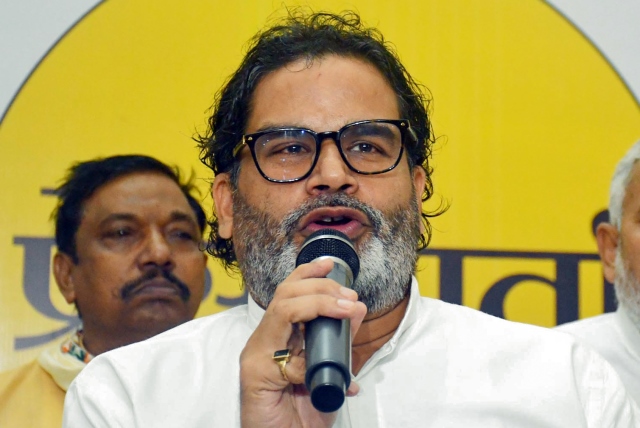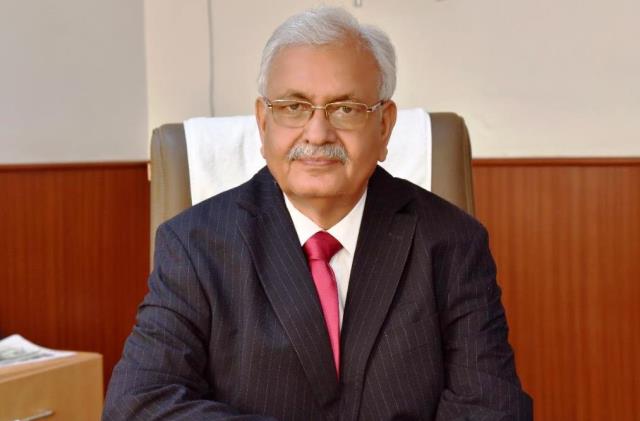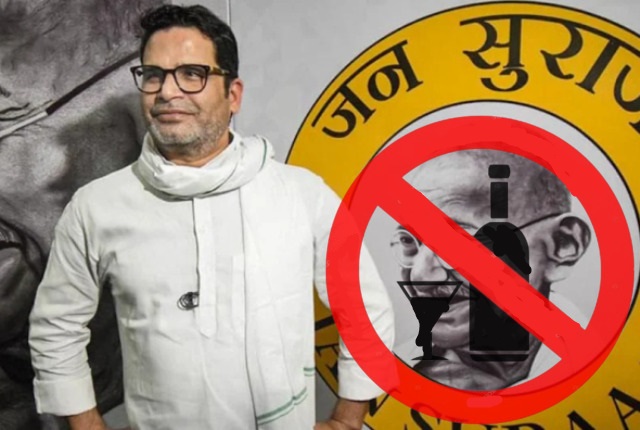Another five days to go for the first phase of polling in Bihar assembly elections, a large section of people one interacted with complain that the traditional media and to an extent the social media has banished Jan Suraaj Party from its coverage. These people with grouse incidentally are across the caste and the underlining point is that most of them are educated and somewhat prosperous.
The desire to see a shift in the fortunes of the state and rid it from the albatross of caste-based society is somewhere making a mark. While debates over the electoral success story of Prashant Kishor’s party could continue but his efforts has certainly won him moral success in shaking up the mindset of the people.
Elections seem fascinating in some measure because they reflect the shifts in people’s thinking and aspirations as well as their expectations of the leaders. On November 14, we may know a little more about “Badalta Bihar” when the outcome of the two-phase Bihar Assembly elections will be known.
As the Opposition Mahagathbandhan appeared to be losing momentum following differences in the alliance over seat-sharing, Rahul Gandhi stepped in and reached out to Lalu Yadav. Rahul rushed old Congress hand and ex-Rajasthan chief minister Ashok Gehlot to Patna to salvage a situation which was getting out of hand.
By naming its CM candidate, the Mahagathbandhan has regained momentum, putting the ruling NDA on the defensive for not having done the same. Union Home Minister Amit Shah left the CM question open when he said that the NDA MLAs will choose their leader after the elections, even as the NDA is contesting the polls under the leadership of the incumbent CM Nitish Kumar.
ALSO READ: Not Naming Nitish As CM Is Part Of NDA Poll Strategy
What has also become evident is that the Bihar fray has thrown up a crop of young leaders, be it Tejashwi Yadav, Chirag Paswan, Mukesh Sahani or Prashant Kishor. In the countdown to the Bihar elections, the “PK factor” features in every conversation about it. The poll strategist-turned-politician Kishor’s Jan Suraaj has caught eyeballs, and got the attention of youths. Tired of old faces and politics, a section of Bihar people has been drawn by his pitch to move beyond caste politics towards ensuring a better future for their children.
Kishor had himself said that his party would get either 150 seats of the state’s 243 or below 10. As the campaign has progressed his words have to be taken seriously and not just dismissed as ‘X’ factor, whatever that would mean.
And in 2022, Kishor the poll strategist, decided to be a political player himself, undertaking padayatras across Bihar for two years before launching his own party on October 2, 2024. His party has been compared to political start-ups like Asom Gana Parishad and Aam Aadmi Party. But Jan Suraaj is different, the former were political fallout of social movements. Here is the instance of a political enterprise set up to take on social and economic causes.
Kishor may not be a product of a movement, but he is born out of a social media and communication revolution impacting our lives. The protests buoyed by social media have toppled governments in Bangladesh, Nepal and Sri Lanka in recent years.
Many believe that politics has been de-ideologised today, getting linked only to power that stems from winning elections, which in turn rides on skilful management of poll machinery. Kishor was among those few who first understood this churn in the country.
And, even as a leader now, he has built a party in a remarkably short time, so much so that he has now fielded candidates in 243 constituencies (he has accused the BJP of forcing three of the Jan Suraaj nominees to withdraw). But curiously, just as he was emerging as one of the central figures during the campaign, he pulled back by deciding not to take the plunge himself. What ace he has up his sleeve has to be watched.
He has set the bar high, declaring that “even if I get 125 seats, I would consider it a defeat” and expects voters to put him “ya to arsh par, nahi to farsh par” (Either I’ll be on the throne or on the floor). Bihar’s politics has often rewarded audacious campaign planks, be it Jayaprakash Narayan’s call for Sampoorna Kranti, Lalu Yadav’s attempt to turn the social hierarchies upside down, or Nitish Kumar’s bid to make governance the centrepiece of his campaign at a time when Bihar was showing the signs of a failed state. Whether Prashant Kishor will join that list remains to be seen.
Yet, any careful analysis of the electoral prospects of his Jan Suraaj Party must take into account that as a seasoned election strategist, he has the means and method to amplify his side of the story. Kishor launched his party on October 2, 2024 after a two-year padyatra across the state that started from Gandhi Ashram in West Champaran district. He claims his team has visited over 5,000 villages, engaging with local communities to identify key issues, and has a membership base of 1 crore.
He claims that since there have been no cataclysmic events in Bihar that could propel a new political force to office, his party gains would be fruits of hard political campaign. He appears to be getting slightly more support from upper castes and Muslims than from OBCs and Dalits.
PK’s campaign is mobilising the economic anxieties among the more aspirational segments such as school teachers, professionals, small entrepreneurs, educated youth and migrants. For them, Kishor’s anti-establishment pitch resonates precisely because both the NDA and MGB seem like two factions of the same old order that have dominated state politics for the last 35 years.
A question is often being asked, whose chances will JSP hurt more, the NDA’s or MGB’s? The NDA’s chances could get hurt if the seat-sharing arrangement within the NDA along with the whisper campaign against Nitish Kumar makes JD (U) appear as a party that could be cannibalised. In the end, the real effect of JSP playing a spoiler may largely be driven by the candidate choices parties make.
So even if PK’s gambit succeeds in a modest way, then the 2025 Bihar election may be won or lost in margins. And, in the process, it may shift the grammar of politics in a state where caste loyalty is the only thing that matters in an electoral battle. Much will depend on whether this middle layer of Bihar’s society remains steadfastly committed to PK’s insurgency or their other identities (and factors) become more dominant on polling day.
For Kishor, it’s a test case of whether election management (PR, strategy, data, etc) can substitute for politics (social coalitions, political alliances, charisma etc). His previous avatar as a strategist did not require him to have a clear ideological image. As a politician, he cannot avoid one. PK is no longer just a planner behind the curtain; he now aspires to be a product with a long shelf life.
Despite all the arguments against him and also reservations about his ability to contest, as the campaign has progressed, Prashant Kishor’s Jan Suraaj is proving to be tough competitor. Explain this in view of the above mentioned factors.
(The writer is an established Author, Academic and President of the Centre for Reforms, Development & Justice)


